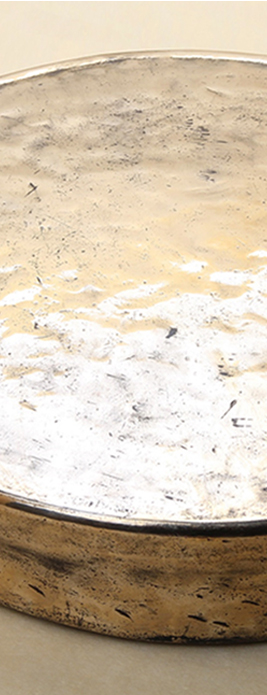
Concept of Banja
Living bowl - Bangjja Yugi
Yugi refers to any product made from Copper alloys. In English, copper and tin are "bronze", while copper and zinc are "brass".
Traditionally, in Korea, bronzeware means material alloyed with 78% copper and 22% tin. Less often, tin is replaced with zinc or nickel. Different characteristics (e.g., color, sound, durability, and beauty) come from the different alloys, different melting technologies, and different methods of manufacture.
Yugi is either hammered or cast.
Bangjja Yugi is handcrafted bronzeware, always using an alloy of 78% copper and 22% tin. The original alloy is molten in a charcoal fire, poured into a rough initial disk, flattened with hammering, and after reheating, it is hammered into the final shape with repeated hammering and quenching. It is the Korean traditional type of bronzeware - originated in Napcheong County, North Korea.
Mold cast Yugi is shaped by pouring the molten metal into a cast, making it possible to manufacture goods in mass production with the same shape as Bangjja Yugi, but without all of the same characteristics. It is also useful for creating difficult shapes with many curved lines or complexity for which Bangjja technology is not suitable.









